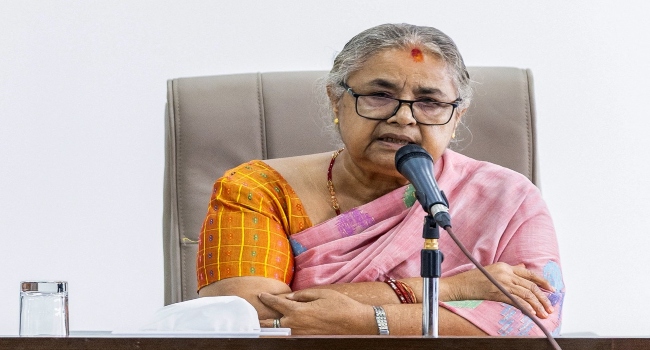Nepal’s new interim prime minister, Sushila Karki, pledged on Sunday to meet protesters’ demands to end corruption as she began her six-month tenure.
Karki, a 73-year-old former chief justice, was appointed after “Gen Z” demonstrations forced out her predecessor. The protests began last Monday over a ban on social media, but quickly escalated into the worst unrest since the 2008 abolition of the monarchy, leaving at least 72 people dead and 191 injured. Parliament and key government buildings were torched.
“We must work in line with the thinking of the Gen Z generation,” Karki declared in her first public remarks since taking office on Friday. She added that young protesters wanted an end to corruption, good governance, and economic equality.
At Singha Durbar, the central government complex partly burned during the unrest, Karki observed a minute’s silence for the victims before holding meetings. She acknowledged her appointment came from public pressure: “The situation I have entered was not of my choosing. My name was brought from the streets.”
The government has scheduled elections for 5 March 2026 and dissolved parliament. Karki promised her cabinet would not remain in office beyond six months, vowing to hand over power to the next elected leaders.
Unemployment remains high, with one in five Nepalis aged 15 to 24 out of work, and GDP per capita just $1,447, according to the World Bank. Analysts warn her administration faces daunting challenges, including unity, economic reform, and security concerns, as more than 12,500 prisoners escaped during the chaos.
President Ram Chandra Paudel, who swore Karki into office, said on Saturday that “a peaceful solution has been found through a difficult process”. Troops have since withdrawn from the streets, although security remains fragile.
Regional leaders, including Indian Prime Minister Narendra Modi and China’s foreign ministry, congratulated Karki and expressed support for Nepal’s stability. The Dalai Lama also wished her success in meeting the aspirations of Nepalis “in these challenging times”.



